
It was also during these memorable April days that the first comprehensive book series covering the entire history, economy, politics , religion, etc., of Ho Chi Minh City, from its early days of "expanding the territory with swords" to its transformation into a major economic and political center of the country, was officially published. "Gia Dinh – Saigon – Ho Chi Minh City: A Long Journey of History" is the fruit of the work nurtured by Mr. Nguyen Dinh Tu through countless ups and downs over 20 long years. The series is considered a handbook, a dictionary, so that whenever one wants to find information related to the city, they can simply open the book and find what they're looking for, without having to search elsewhere.

At the age of 103, researcher Nguyen Dinh Tu calls himself an " eccentric old man" because he still diligently works 8-10 hours a day, compiles manuscripts on his computer without glasses, walks without a cane, and doesn't need anyone to assist him. Above all, it is his never-ending passion for national history that stands out .
Living a simple life in a small alley, few people know that this elderly man with a long, white beard has a great desire to contribute to Ho Chi Minh City and the country. It was his patriotism that motivated him to seek out research materials and write books about Vietnamese history .
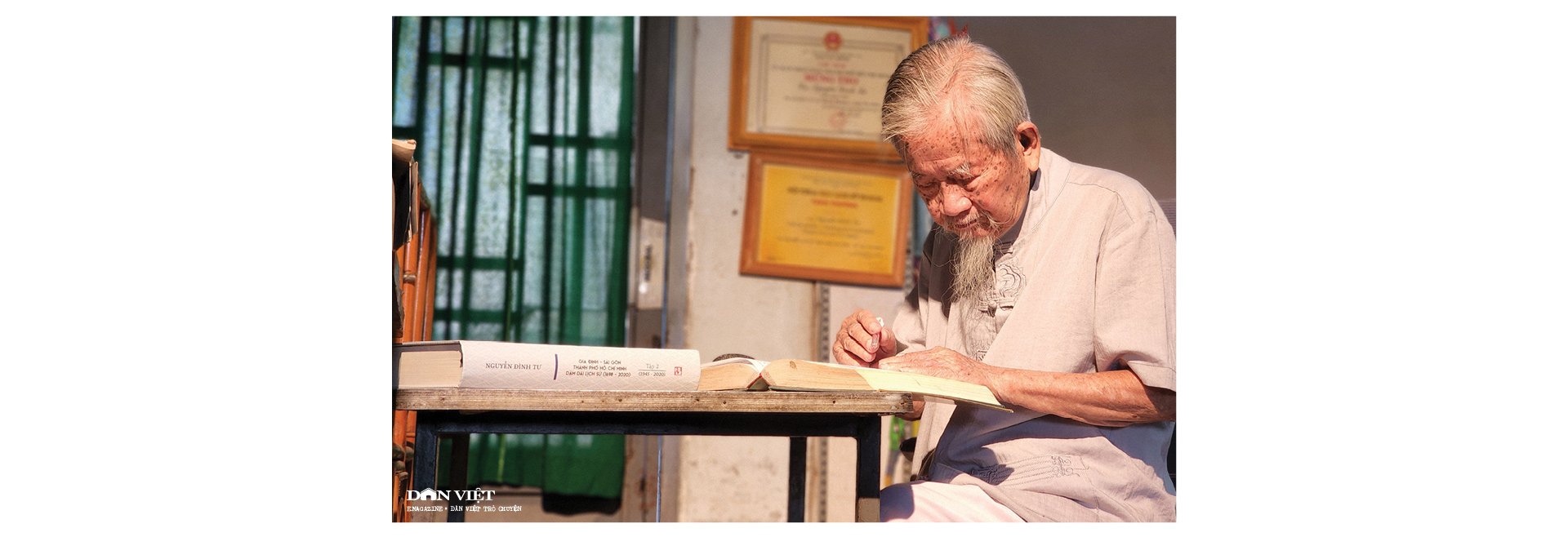
Born and raised in a French colony , and having studied French, how did he develop a passion for Vietnamese history ?
Born in the impoverished rural area of Thanh Chuong, Nghe An , the journey from learning classical Chinese, Vietnamese, elementary school, and high school... for an average person only takes a few years, but for me, it lasted over a decade. I kept going to school, then having to stop because of the family's difficult circumstances. I had to herd buffalo, work in the fields, and earn a living. When I had a little money, I would return to school, and then go back to earning more. I didn't graduate from high school until I was 22. I participated in the first and only elementary school college entrance exam under the Tran Trong Kim government. Just after graduating, the August Revolution broke out. I put aside my studies and joined the resistance until the Geneva Accords were signed, then I packed my bags and returned home.
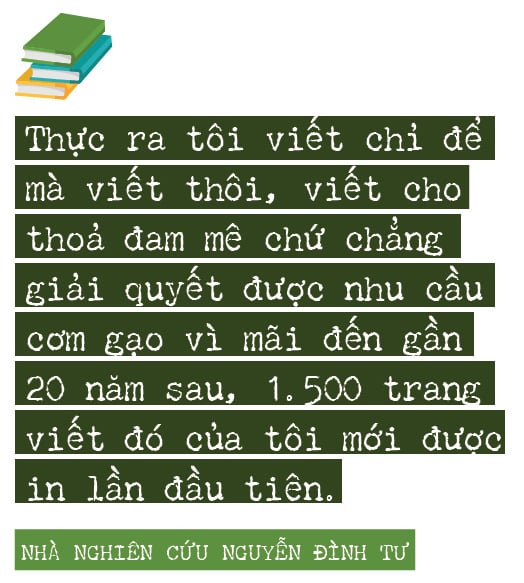
That year, Central Vietnam suffered a terrible flood. To make a living, my whole family moved to Hanoi for a while, then to Khanh Hoa. Thanks to my elementary education college diploma, I got a temporary teaching position at an elementary school in Nha Trang. Being a temporary teacher meant that if the school needed a teacher, I would teach temporarily until they hired another one. The salary was low, and the job was unstable, but to support my family, I had to keep working. Later, I passed the entrance exam for the land surveying program in Phu Yen , and that's when things started to get relatively stable. For a time, I rediscovered my passion for researching geography and writing history.
Back in elementary school, I happened to borrow a book about Phan Đình Phùng, and later the story of King Hàm Nghi's resistance against the French. I truly respected our ancestors and became fascinated with Vietnamese history from then on. I eagerly awaited each weekly publication from Tân Dân Publishing House in Hanoi. Reading books by renowned writers of the time like Tô Hoài, Bùi Hiển, Trúc Khê…, I thought, "If they can write, I can too," so I took a chance and wrote about the founding father Nguyễn Xí and sent it to them. Unexpectedly, a month later, my book was on sale in Vinh. "Taking advantage of the momentum," I continued writing "Family Revenge, National Debt" and several other short books.
During my years working in Phu Yen, once my job was stable, I returned to researching and writing the geographical treatises "The Landscape of Phu Yen," "The Geographical Treatise of Khanh Hoa," and "The Landscape of Ninh Thuan." One difference was that I "infused" the writing into a literary style, meaning I didn't just dryly describe the geographical features of the region, but added details about literature, people, and famous poetry related to that land. As a result, my geographical treatises are quite different from my previous works; they are easier to read, understand, and remember. This research work was interrupted by changing circumstances, and I no longer had the resources to continue.
Did the ups and downs of life , the hardships of making a living, ever cause him to give up, to abandon his love and passion ?
- After the events of 1975, the country underwent many changes following liberation. At that time, I was nearly 60 years old and couldn't escape the upheavals of the times. Unemployed, to earn money to support my wife and children who were still in school, I had to sit at the intersection repairing bicycles, earning 5-10 dong to buy rice to feed my children.
During quiet periods, sitting and watching cars go by, I felt so bad about wasting time that I had to write. "The Rebellion of the Twelve Warlords" is the only historical novel born under those unavoidable circumstances.
At that time, I had sold all my books and documents to buy rice, and I didn't have time to go to the library to research because I was busy repairing bicycles. Looking back at history, I realized that the period of the Twelve Warlords was very lacking in historical records and documents. So I spread paper on a toolbox used for repairing bicycles and sat writing in the middle of the intersection. My first readers were college students who came to get their bicycles repaired, reading to relieve boredom while waiting for their bikes to be fixed...
Actually, I wrote just for the sake of writing, to satisfy my passion, not to meet my basic needs like making a living, because it wasn't until almost 20 years later that those 1,500 pages of my writing were first published.
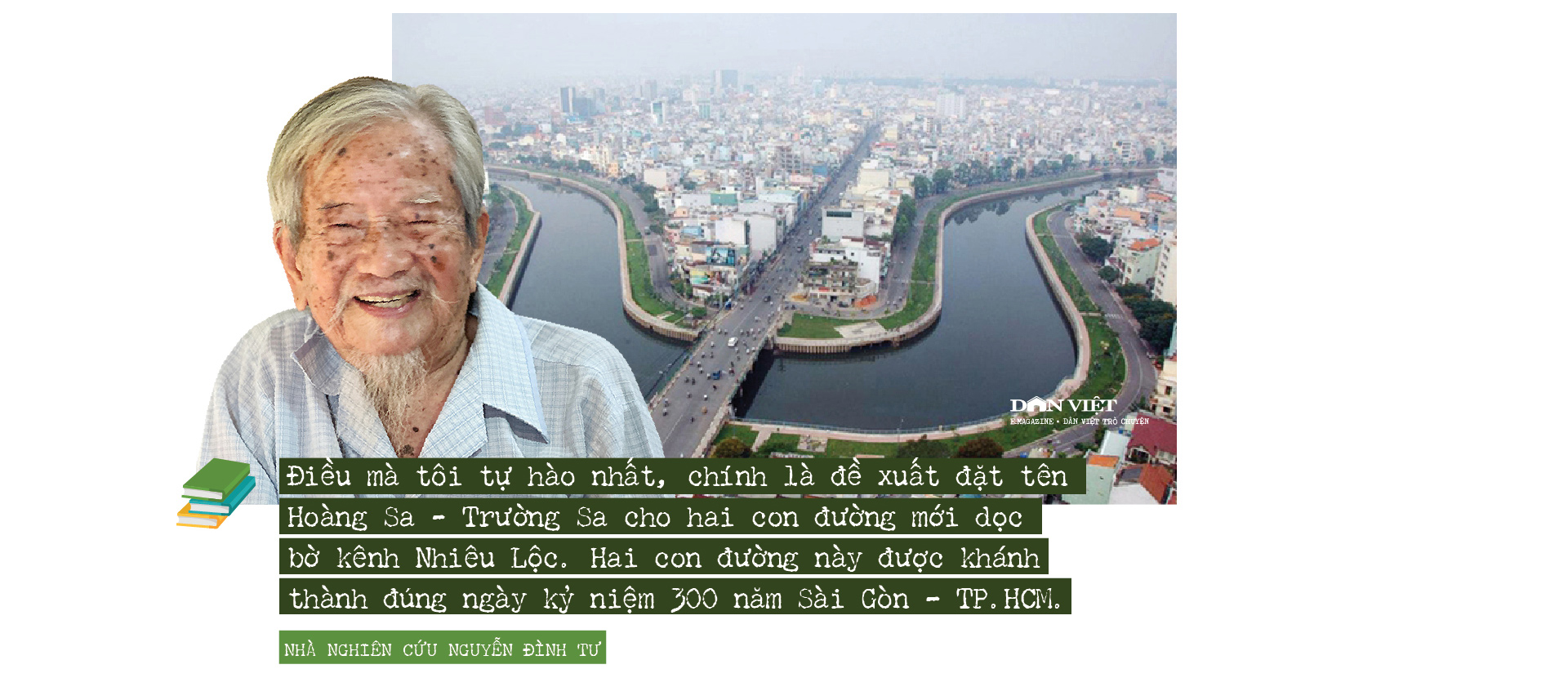
He was also the first to write about the streets of Ho Chi Minh City that were renamed after liberation . What motivated him to single-handedly undertake such a thankless task ?
- After liberation, the government renamed over 100 streets in the city. While repairing a motorbike at an intersection, I saw how hard the motorbike taxi and cyclo drivers were working. They didn't know the new street names, where they were located, and couldn't take customers, so they lost their jobs. No one knew the backgrounds of the people after whom the new streets were named, and there were no notes indicating the old street names below the new ones, so people couldn't remember or find their way. I felt compelled to write a book about the street names of Ho Chi Minh City to serve the public.
I used my mini-bicycle to travel all over Ho Chi Minh City, researching each street name, checking where it started and ended, its length, what was on either side, which government offices were located there, and the history of the old street... After several years of this, the book "Inner City Streets of Ho Chi Minh City" was published, and I was honored to have a introduction written by my contemporary historian, Nguyen Dinh Dau. He said: "You've done a great job, it's very useful for everyone."
After my book was published, the Department of Culture and Information invited me to join the City's Street Naming Council. During my time on that council, I named and renamed nearly 1,000 streets. But what I am most proud of is proposing to name two new roads along the Nhieu Loc canal after Hoang Sa and Truong Sa. These two roads were inaugurated on the 300th anniversary of Saigon - Ho Chi Minh City.
Many people ask me why I named them Hoang Sa and Truong Sa, and I only have one thought: They are our archipelago, the flesh and blood of our country. Our descendants must not forget that Hoang Sa and Truong Sa belong to Vietnam, and future generations will have to reclaim them.
After liberation, some people invited me to settle in America, but I refused. I simply thought: The country is liberated, so why should I leave? I am just a citizen who loves my country.

"Gia Dinh – Saigon – Ho Chi Minh City: A Long Journey Through History " has gone through many ups and downs to be published today. What has kept the passion burning within him ?
- Years of living in this city have inspired me to write about its history. Many have written about Saigon-Chợ Lớn, Ho Chi Minh City, but each focuses on a specific aspect or facet of the city; no work has comprehensively covered all aspects and fields of activity. Even the book "Cultural Geography of Ho Chi Minh City" only provides a general overview of history, culture, art, ideology, and religion, without addressing other areas. Therefore, I am determined to write a book that provides a comprehensive and detailed overview of the historical periods from 1698 to 2020, including the political regimes and the various fields of activity—administration, economics, society, culture, education, healthcare, religion, sports, etc.—of each era.
It's worth mentioning that the story began in 1998 when Ho Chi Minh City announced it would celebrate its 300th anniversary. However, I didn't see any cultural, scientific, or historical organizations or groups holding any events. Feeling anxious, I drafted an outline for a comprehensive study of Gia Dinh - Saigon - Ho Chi Minh City throughout its 300-year history (1698-1998) and sent it to Professor Tran Van Giau with the request: "If Professor Gia Dinh approves, please allow the Historical Society or another organization or agency to use this outline as a reference to create a more complete outline for the aforementioned book." A few days later, the Ho Chi Minh City Center for Social Sciences and Humanities invited me to sign a contract to produce the book "Gia Dinh - Saigon - Ho Chi Minh City 300 Years" based on my outline.
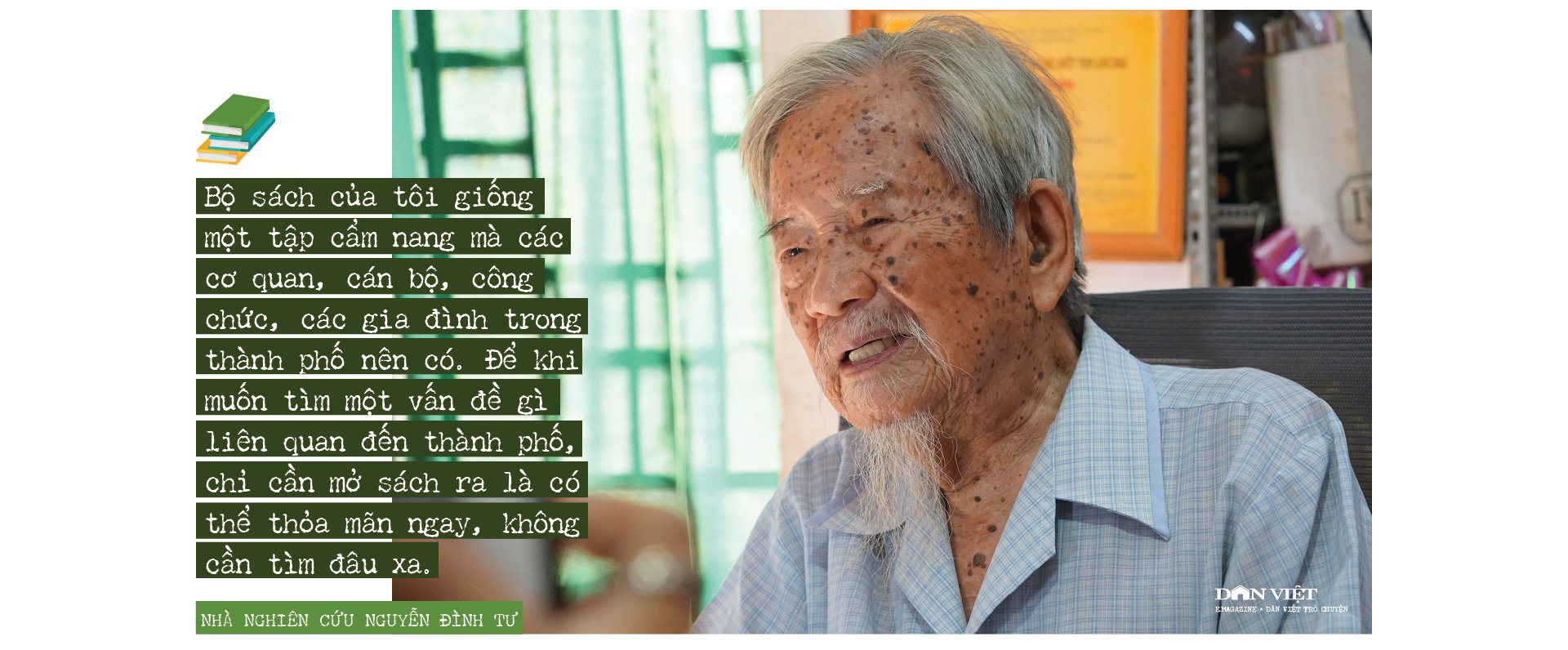
I devoted my time and energy to libraries and archives, collecting documents and writing day and night. As the anniversary approached, 1,500 typed pages were completed, the work was approved, and even the layout and cover design were finalized. Everything was almost complete when a major setback occurred: the book was never published.
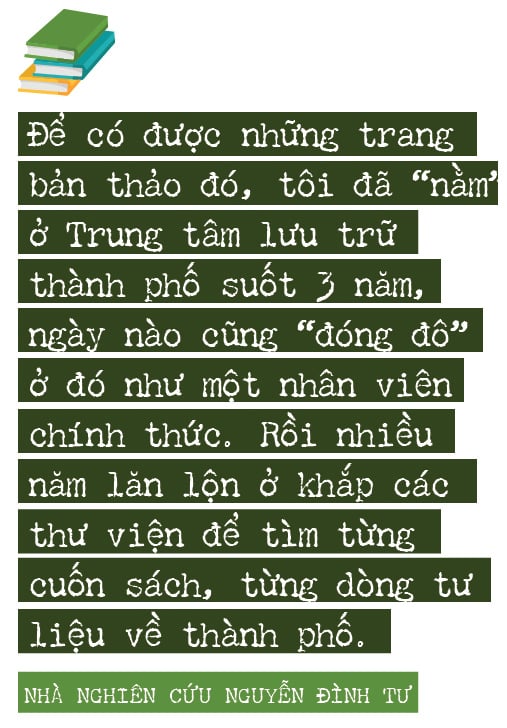
However, I cherish my documents and cannot throw them away. I waited for a suitable day to use them to write a more complete book, so I kept the manuscript for the past 20 years. Now that day has come, I retrieved the old manuscript, reread each page, revised the sentences, added newly found material, and continued writing the period from 1998 to 2020 to complete this book.
Few people know that, to obtain those manuscripts, I spent three years "stationed" at the city's archives, working there every day as a full-time employee. Then, for many years, I scoured libraries, searching for every book and every document about the city. From French books and classical Chinese texts to translated books, documents from the feudal era and the Republic of Vietnam… I tried my best to find them all.
The book "Gia Dinh - Saigon - Ho Chi Minh City - A Long Journey of History (1698 - 2020)" gives readers a comprehensive understanding of Saigon, from the lives of its people to its political system, from poetry and folk songs to administrative units, from its economy, society, culture, and religion throughout different historical periods.
The thousand pages of "A Long Journey Through History" are not long for readers who wish to understand Saigon from its history during the Stone Age, the Funan period, the Nguyen Dynasty, the French colonial period… Saigon life is depicted in the book not only through archaeological sites and documents but also in legends, folk songs, the transformation of canals, and the turning of forests into intersections…
My book series is like a handbook that agencies, officials, civil servants, and families in the city should have. So that when they want to find information about any issue related to the city, they can simply open the book and find what they need immediately, without having to search elsewhere.
Looking back on my life, the book "The Rebellion of the Twelve Warlords" was only printed for the first time after 20 years, and "Gia Dinh – Saigon – Ho Chi Minh City: A Long Journey of History," even after its layout was completed, also had to wait 20 years before publication. But throughout that entire period, I never once felt discouraged or wanted to give up. It was all because of my passion that I waited…

Vietnamese history is glorious and full of pride, but in reality, the subject of history in schools today is not well-received by students. In your opinion , is this due to objective factors or because adults themselves have failed to instill a passion for history in the younger generation ?
History is a process of inheritance and continuity, connecting the past to the present. Teaching history requires relating past events to reality, even to politics and current events.
When I was in school, History was the most popular subject among students. The teachers back then based their lessons on the textbook, creating detailed and comprehensive lectures that connected the material to many aspects of life, making the learning very engaging. I remember my History teacher was the younger brother of General Vo Nguyen Giap, who was teaching history at Thang Long Private School outside Hanoi. General Giap had an incredibly good set of History lesson plans, and we learned history from these very plans.
We learned about our ancestors, about the enduring patriotic spirit of nations around the world, thereby fostering patriotism and national pride in the Vietnamese people. Our teachers not only taught us textbook knowledge but also life lessons and the harsh realities of political life, from which we gained our own valuable insights.
Nowadays, students only like to hang out, watch TV, use their phones, and refuse to read or ask questions. Teachers don't want to answer questions outside of the textbook, only teaching what's in the book, so it's no surprise that students are bored.
History is not just dry facts and figures on paper; it is the flow of life. History teachers must not only teach knowledge but also a system of thinking and ideology. To change and make students more interested in the glorious history of the nation, the first and most important thing is to change teaching methods. Teachers must create their own lesson plans, with dedication and a love for history, so that they can instill that passion in their students.
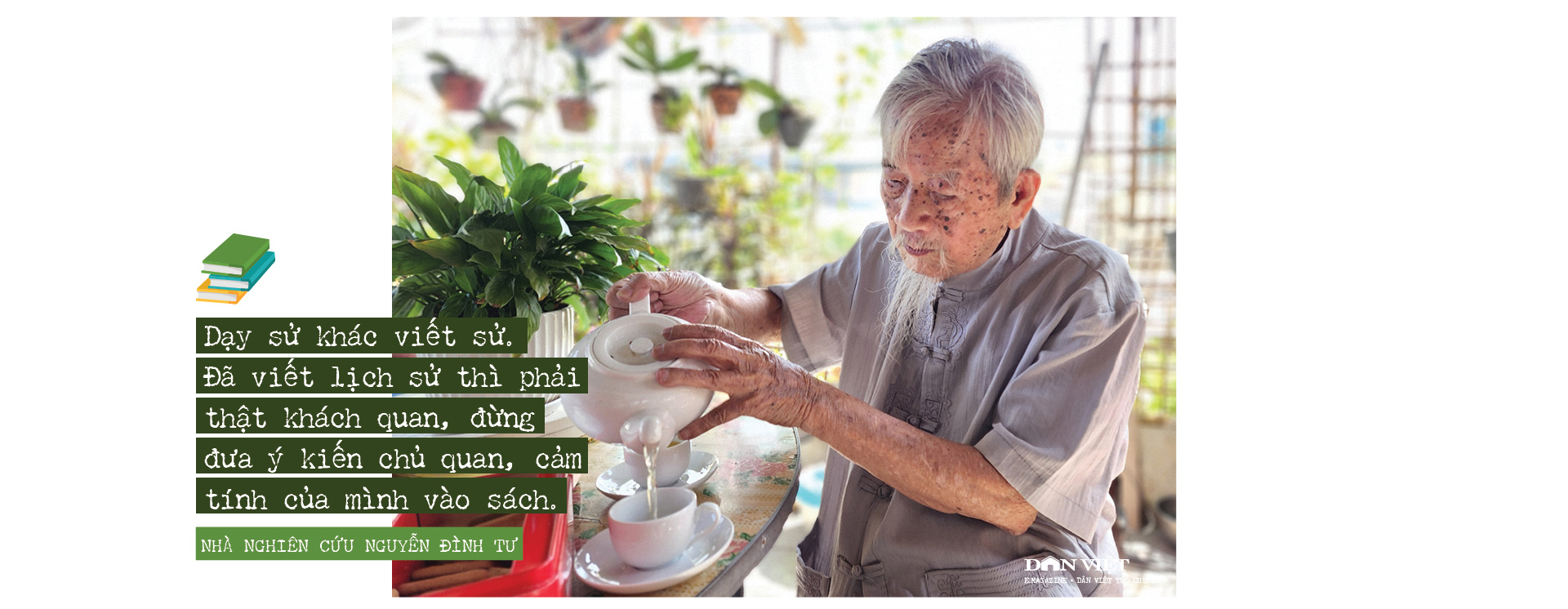
At 103 years old, he still diligently researches and continues to write. Could his historical facts ever be questioned by others ?
- Teaching history is different from writing history. When writing history, one must be truly objective, not including subjective opinions or personal feelings in the book. "No one is perfect," so history cannot be entirely rosy. However, the understanding of historians, readers, and those who perceive history can only be enriched over time; sometimes there are mistakes, sometimes naivety. Therefore, if there is an issue that cannot be accurately stated today, we will have to wait.
Regardless of the regime or era, national governance is always done by people, and as humans, everyone makes mistakes. They may think wrongly or implement wrong policies, but the important thing is to correct those mistakes, just as President Ho Chi Minh did. And when correcting mistakes, one must do better, choosing the better approach to rectify them.
After completing two books on the history of Gia Dinh – Saigon – Ho Chi Minh City, I am currently commissioned to write a Dictionary of Administrative Place Names in Northern and Central Vietnam. At the same time, I am also completing my autobiography at the request of the City Party Secretary, Nguyen Van Nen.
This will be a page recording my journey, intertwined with memories of my family, my hometown of Nghe An, where I was born and raised, as well as the places I have traveled through and settled in until now.
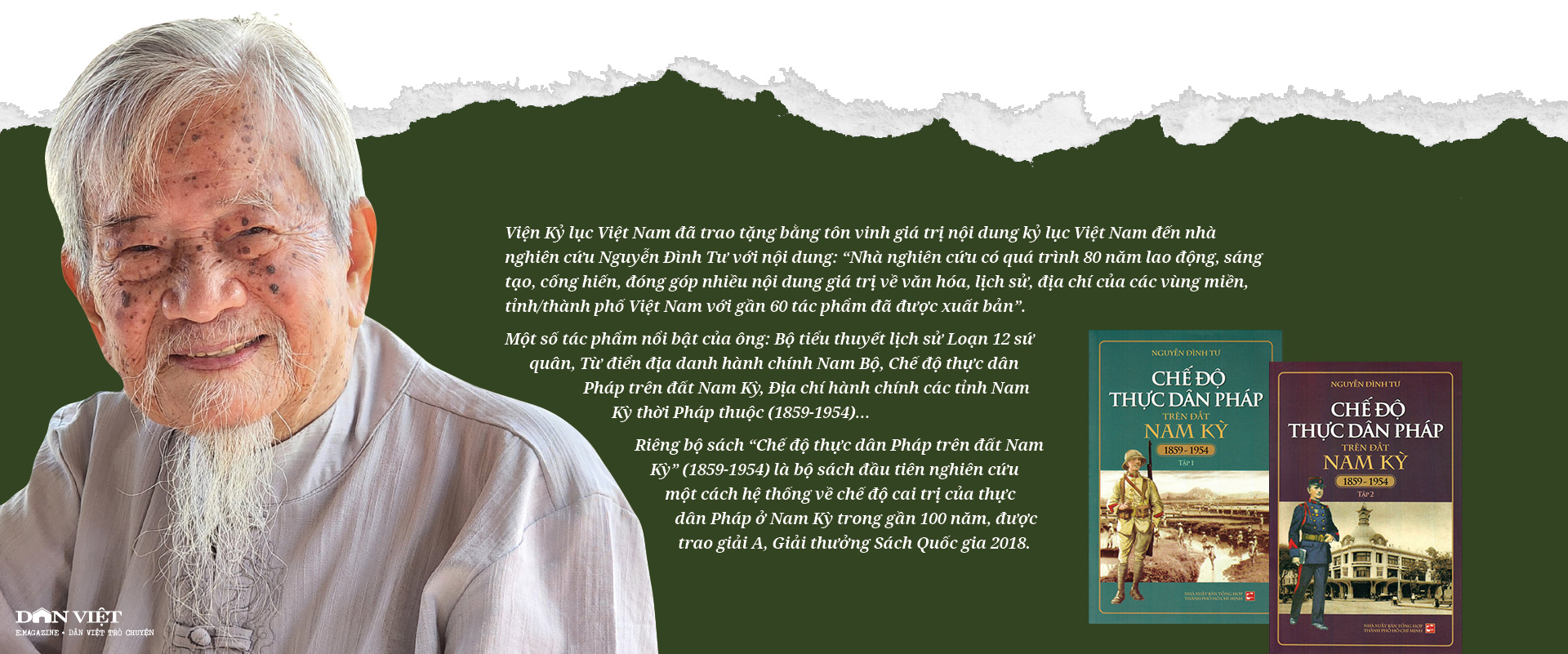
Source



![[Photo] Prime Minister Pham Minh Chinh holds a phone call with the CEO of Russia's Rosatom Corporation.](/_next/image?url=https%3A%2F%2Fvphoto.vietnam.vn%2Fthumb%2F1200x675%2Fvietnam%2Fresource%2FIMAGE%2F2025%2F12%2F11%2F1765464552365_dsc-5295-jpg.webp&w=3840&q=75)






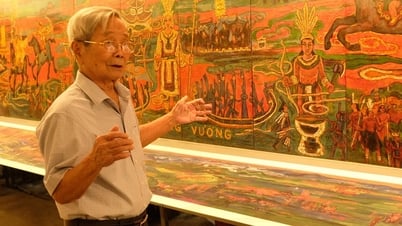
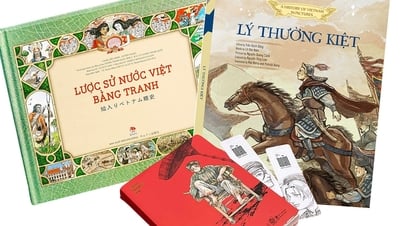


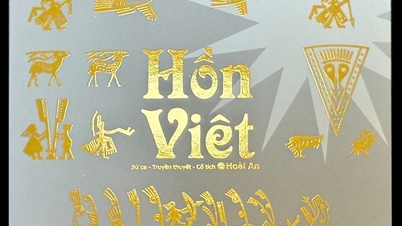










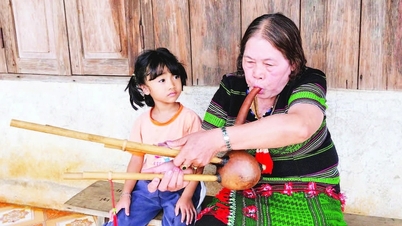

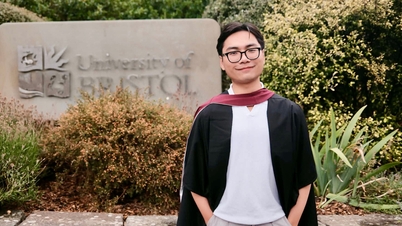






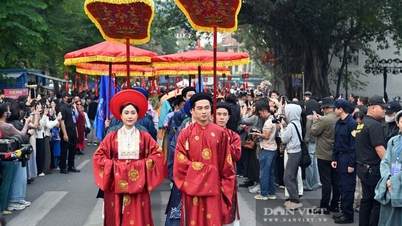
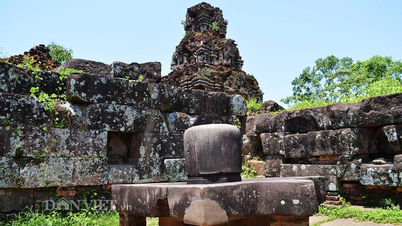
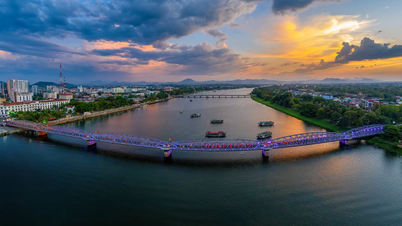




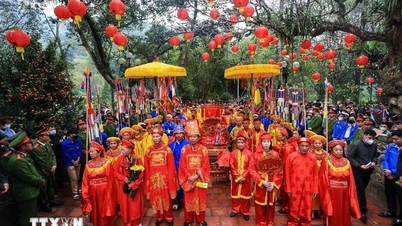



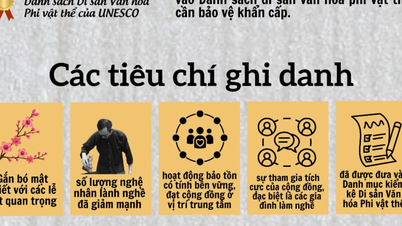




























































Comment (0)